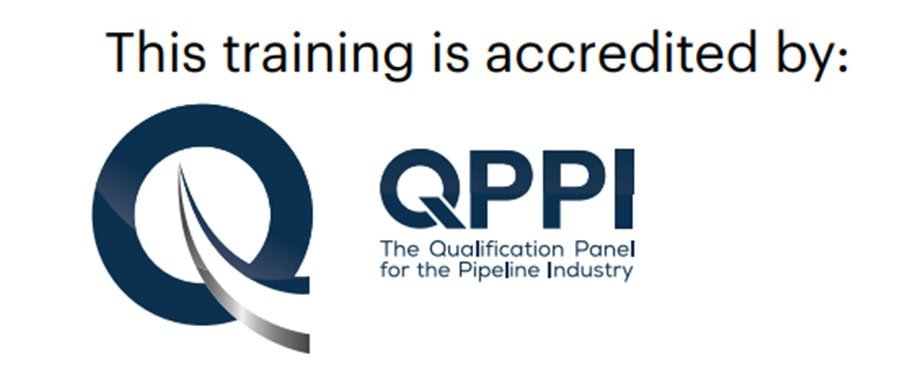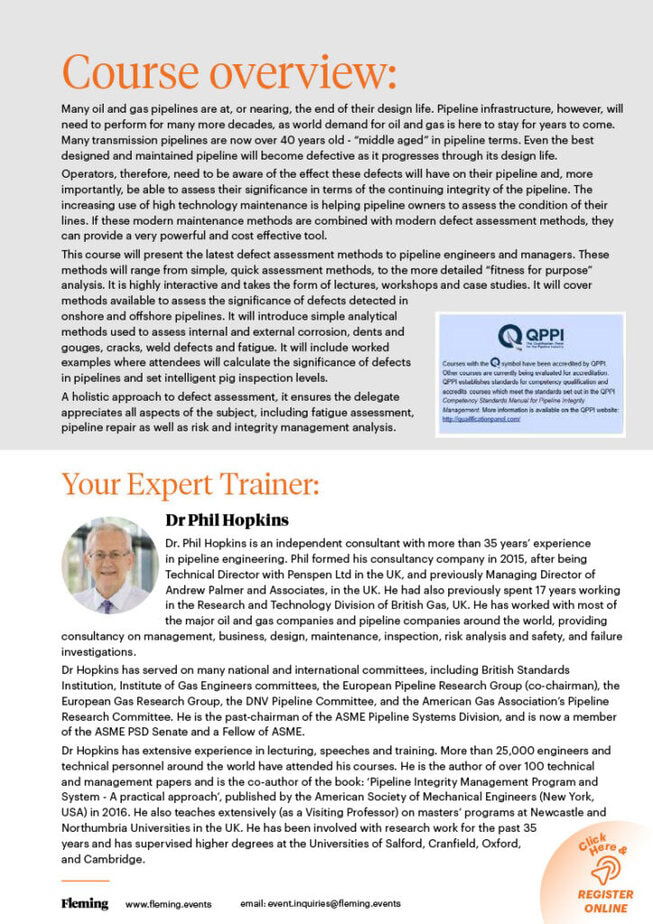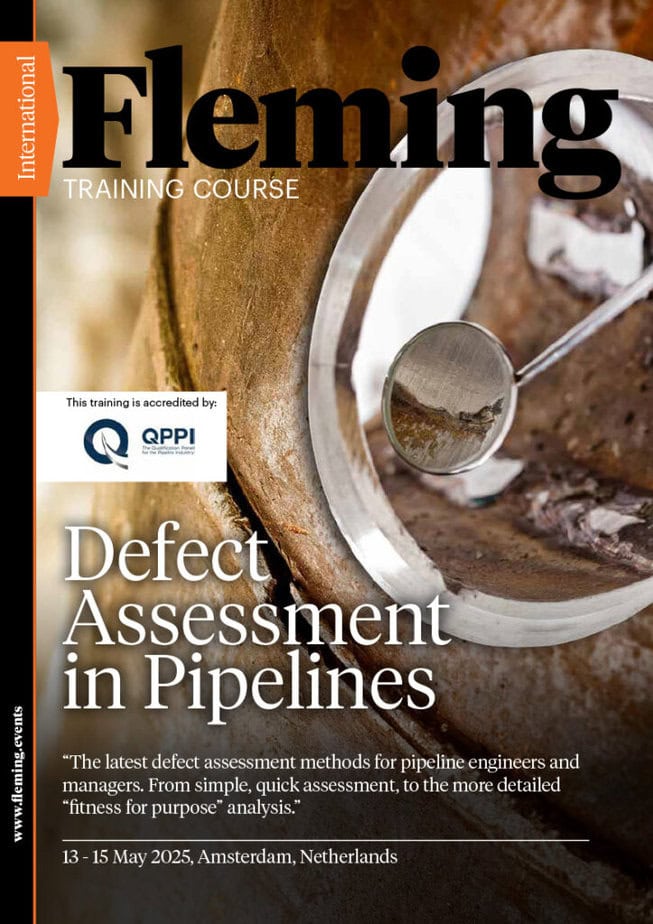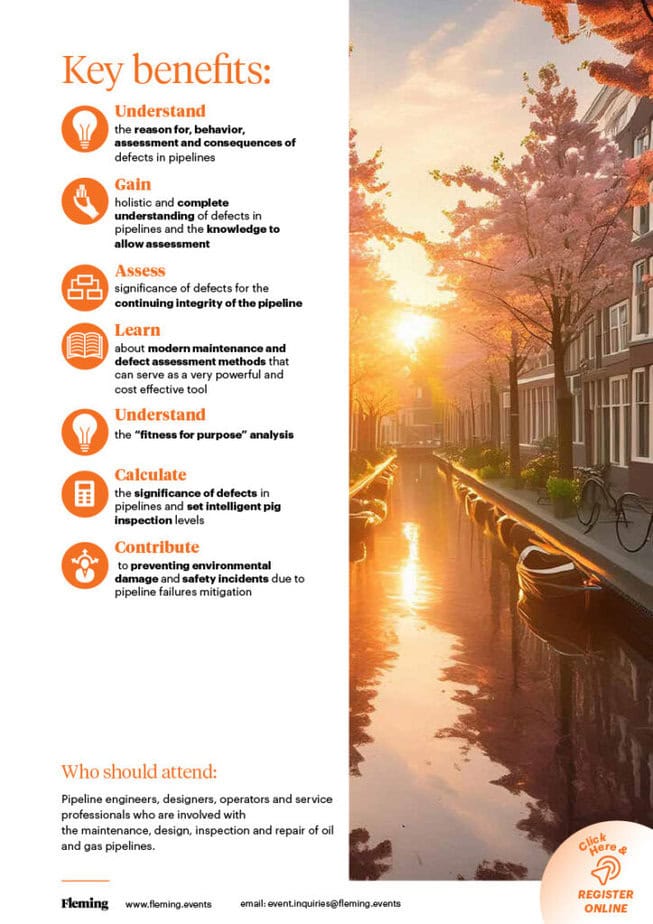Course description
Many oil and gas pipelines are at, or nearing, the end of their design life. Pipeline infrastructure, however, will need to perform for many more decades, as world demand for oil and gas is here to stay for years to come. Many transmission pipelines are now over 40 years old – “middle aged” in pipeline terms. Even the best designed and maintained pipeline will become defective as it progresses through its design life.
Operators, therefore, need to be aware of the effect these defects will have on their pipeline and, more importantly, be able to assess their significance in terms of the continuing integrity of the pipeline. The increasing use of high technology maintenance is helping pipeline owners to assess the condition of their lines. If these modern maintenance methods are combined with modern defect assessment methods, they can provide a very powerful and cost effective tool.
This course will present the latest defect assessment methods to pipeline engineers and managers. These methods will range from simple, quick assessment methods, to the more detailed “fitness for purpose” analysis. It is highly interactive and takes the form of lectures, workshops and case studies. It will cover methods available to assess the significance of defects detected in onshore and offshore pipelines. It will introduce simple analytical methods used to assess internal and external corrosion, dents and gouges, cracks, weld defects and fatigue. It will include worked examples where attendees will calculate the significance of defects in pipelines and set intelligent pig inspection levels.
A holistic approach to defect assessment, it ensures the delegate appreciates all aspects of the subject, including fatigue assessment, pipeline repair as well as risk and integrity management analysis.







